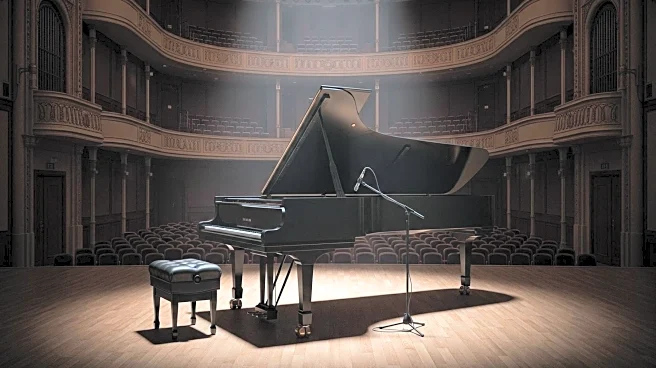What's Happening?
The Promontory, a popular music venue located in Hyde Park, Chicago, is set to close after 11 years of operation. The closure was announced on Instagram and confirmed by venue manager Mario Smith. The Promontory is part of the hospitality collective '16” on Center,' which includes other venues such as The Empty Bottle and Salt Shed. The decision to close comes amid financial challenges faced by the venue, which has been a staple in the South Side music scene. The venue has hosted numerous events and performances, contributing to the cultural vibrancy of the area.
Why It's Important?
The closure of The Promontory marks a significant loss for the local music and cultural scene in Hyde Park and the broader South Side of Chicago. Music venues like The Promontory play a crucial role in supporting local artists and providing a space for community engagement and cultural expression. The financial difficulties leading to the closure reflect broader challenges faced by independent music venues, particularly in the wake of economic pressures and changing consumer habits. The loss of such venues can impact local economies, reduce cultural offerings, and limit opportunities for artists and performers.
What's Next?
As The Promontory prepares to close, stakeholders in the local music and cultural community may seek alternative venues to host events and performances. The hospitality collective '16” on Center' may explore options to support other venues within its network to mitigate the impact of the closure. Community leaders and cultural advocates might engage in discussions to address the financial challenges faced by independent venues and explore potential support mechanisms. The closure could also prompt conversations about the sustainability of cultural spaces in urban areas and the need for policies that support the arts.
Beyond the Headlines
The closure of The Promontory highlights the vulnerability of cultural institutions to economic pressures and the importance of community support in sustaining such venues. It raises questions about the long-term viability of independent music venues and the role of public policy in preserving cultural heritage. The situation may encourage a reevaluation of how cultural spaces are funded and supported, potentially leading to innovative solutions to ensure their survival.









